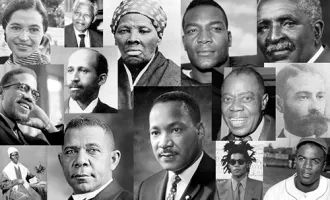
Former U.S. Secretary of State Henry Kissinger and Prime Minister of Rhodesia Ian Smith circa 1977.
This Date in UCSF History: South African Speaker Pans ‘Kissinger Plan’
Originally published on December 1, 1977.
There is a struggle for Black majority rule going on currently in Zimbabwe (Rhodesia). Leonard Mudvanu, speaking as a representative of the Patriotic Front, discussed the current situation in Zimbabwe at a recent UCSF forum.
The Organization for African Unity (O.A.U.) has recognized the Patriotic Front as a legitimate arm of the people of Zimbabwe in their struggle for majority rule. Mudvanu said the liberation forces in Zimbabwe are near victory. They have been fighting the illegal white Rhodesian government for almost 15 years. Unable to peacefully influence the non-UN recognized government of Ian Smith to step down, the Patriotic Front was forced into a military struggle, said Mudvanu.
Leonard Mudvanu said the current US-British Peace Plan (also known as the Kissinger plan) is an attempt to prevent the total victory of the popular Black movements in Zimbabwe. He said the United States and Britain, realizing victory is near, have attempted to pose as friends of majority rule while at the same time continuing to pursue the economic and political policies of support for the illegal Rhodesian Regime.
Mudvanu ended his speech with a request for the support of non-intervention of foreign interests in their struggle for a non-racist majority rule government. He indicated that the Patriotic Front is in desperate need of medical supplies.
At UCSF, STAT, a committee of workers and students from UCSF, said that there will be a campaign against University of California investment in corporations operating in South Africa and that there will also be a drive to collect and send medical supplies.
Last month approximately 100 protesters picketed the South African consulate in San Francisco. The demonstration was in response to the continued escalating repression against all critics of the apartheid regime.
Demonstrators chanted “U.S. Out of Africa. Liberation Now!” in opposition to continued U.S. support of the minority South African regime. Students and workers from UCSF, UC Berkeley, and other Bay Area campuses marched with the South African Solidarity Committee while South African consulate representatives refused to acknowledge their presence.
STAT presented the second in a series of educational forums dealing with South Africa.
The film “There Is No Crisis” is a chronicle of the student uprisings that took place in June 1976 outside of Johannesburg in the all-Black township of Soweto.
The film, made by British journalists, consists of interviews with leading representatives of the student movement. The interviews, conducted in secret, were taped shortly after the massacre of over 1,000 students of Soweto, who were trying to change the language requirement in their schools. All the students interviewed in the film were arrested within days of the taping or were forced to flee the country.
Until June of last year, South Africa’s policy was to teach all courses in Afrikaans (the Dutch derived language of the white South Africans), teaching English in some cases as a second language. The students demanded that their classes in the future be conducted in English and that their own native Bantu language be taught.
The conflict was reflective of a much deeper struggle in South Africa for non-white people’s rights to control their own and social and cultural lives. What began as a protest for student rights soon developed into a full-scale confrontation between the South African government and town-dwelling Blacks.
The title of the film, “There Is No Crisis,” is taken from a quote by the South African Prime Minister in response to the world outcries over the dead students.



